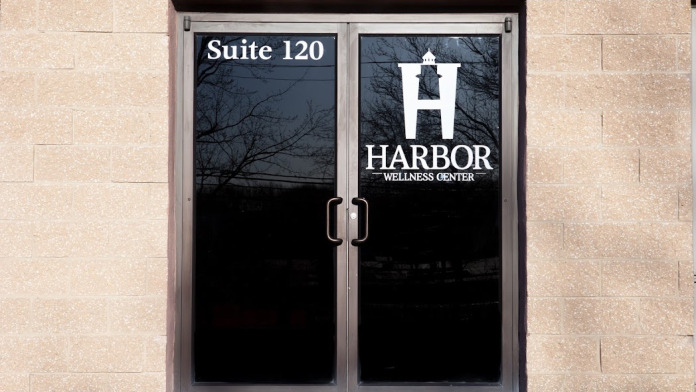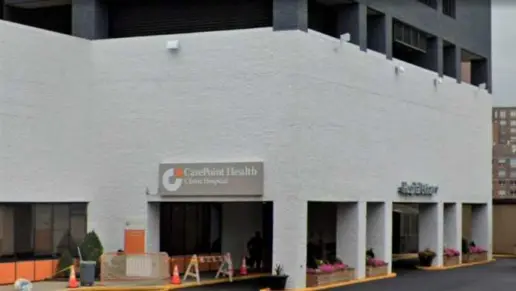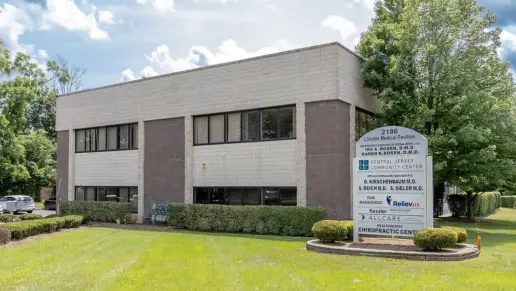About Harbor Wellness and Recovery Center
Just 15 miles west of the Jersey Shore lies Harbor Wellness and Recovery Center in Holmdel, New Jersey. They provide a full continuum of adult outpatient addiction and co-occurring disorder care. You’ll benefit from flexible payment options with most commercial insurances accepted including Anthem, Horizon BlueCross BlueShield, Aetna, Cigna and more. They also provide customized payment plans.
You can access advanced, proven therapeutic interventions while living at home and maintaining other responsibilities. Their programs provide a personalized treatment plan with your goals at the forefront. You’ll have options for different treatment intensities to meet your needs, including day treatment, intensive outpatient programs, and standard outpatient rehab.
Individual and group sessions focused on trauma, psychoeducation, life skills development, relapse prevention, anger management and more are available. Many spend between 30 days to six months in treatment. Still, treatment length will depend on your unique situation.
What stands out most to me is their aftercare approach. They ensure you have ongoing support after finishing treatment. You can participate in alumni meetings and leadership opportunities in their organization. They even offer lifelong case management support. You’ll benefit from continuous guidance from their empathetic team to stay on track in recovery.
Another amazing feature I noticed was their extended care program. They understand recovery is a personal experience and that strengths, needs and goals will vary. Having as much time as you need to heal and focus on recovery can help you leave treatment with the coping skills and self-assurance to sustain it.
Lastly, I think their family sessions are wonderful. You can participate in individual and multi-family group therapy. They don’t just create a safe space to rebuild broken relationships with your loved ones in private. You and your family will also benefit from connecting with and learning from others on similar walks.
Rehab Score
Gallery

Location
Accepted Insurance




Other Forms of Payment
Medicaid is a state based program that helps lower-income individuals and families pay for healthcare. Medicaid covers addiction treatment so those enrolled can use their coverage to pay for rehab. When a program accepts Medicaid the client often pays very little or nothing out of their own pocket.
Self-pay involves paying for treatment out of your own pocket. You can use savings or credit, get a personal loan, or receive help from family and friends to fund your treatment. If you don't have insurance or your insurance plan doesn't cover a specific program, self-pay can help ensure you still get the care you need.
Private insurance refers to any kind of healthcare coverage that isn't from the state or federal government. This includes individual and family plans offered by an employer or purchased from the Insurance Marketplace. Every plan will have different requirements and out of pocket costs so be sure to get the full details before you start treatment.
Military members, veterans, and eligible dependents have access to specific insurance programs that help them get the care they need. TRICARE and VA insurance can help you access low cost or no cost addiction and mental health treatment. Programs that accept military insurance often have targeted treatment focused on the unique challenges military members, veterans, and their families face.
Addiction Treatments
Levels of Care
Treatments
A combined mental health and substance abuse rehab has the staff and resources available to handle individuals with both mental health and substance abuse issues. It can be challenging to determine where a specific symptom stems from (a mental health issue or an issue related to substance abuse), so mental health and substance abuse professionals are helpful in detangling symptoms and keeping treatment on track.
Clinical Services
Research clearly demonstrates that recovery is far more successful and sustainable when loved ones like family members participate in rehab and substance abuse treatment. Genetic factors may be at play when it comes to drug and alcohol addiction, as well as mental health issues. Family dynamics often play a critical role in addiction triggers, and if properly educated, family members can be a strong source of support when it comes to rehabilitation.
Group therapy is any therapeutic work that happens in a group (not one-on-one). There are a number of different group therapy modalities, including support groups, experiential therapy, psycho-education, and more. Group therapy involves treatment as well as processing interaction between group members.
In individual therapy, a patient meets one-on-one with a trained psychologist or counselor. Therapy is a pivotal part of effective substance abuse treatment, as it often covers root causes of addiction, including challenges faced by the patient in their social, family, and work/school life.
Contact Information
2139 NJ-35, suite 120
holmdel
Holmdel, NJ 07733

















